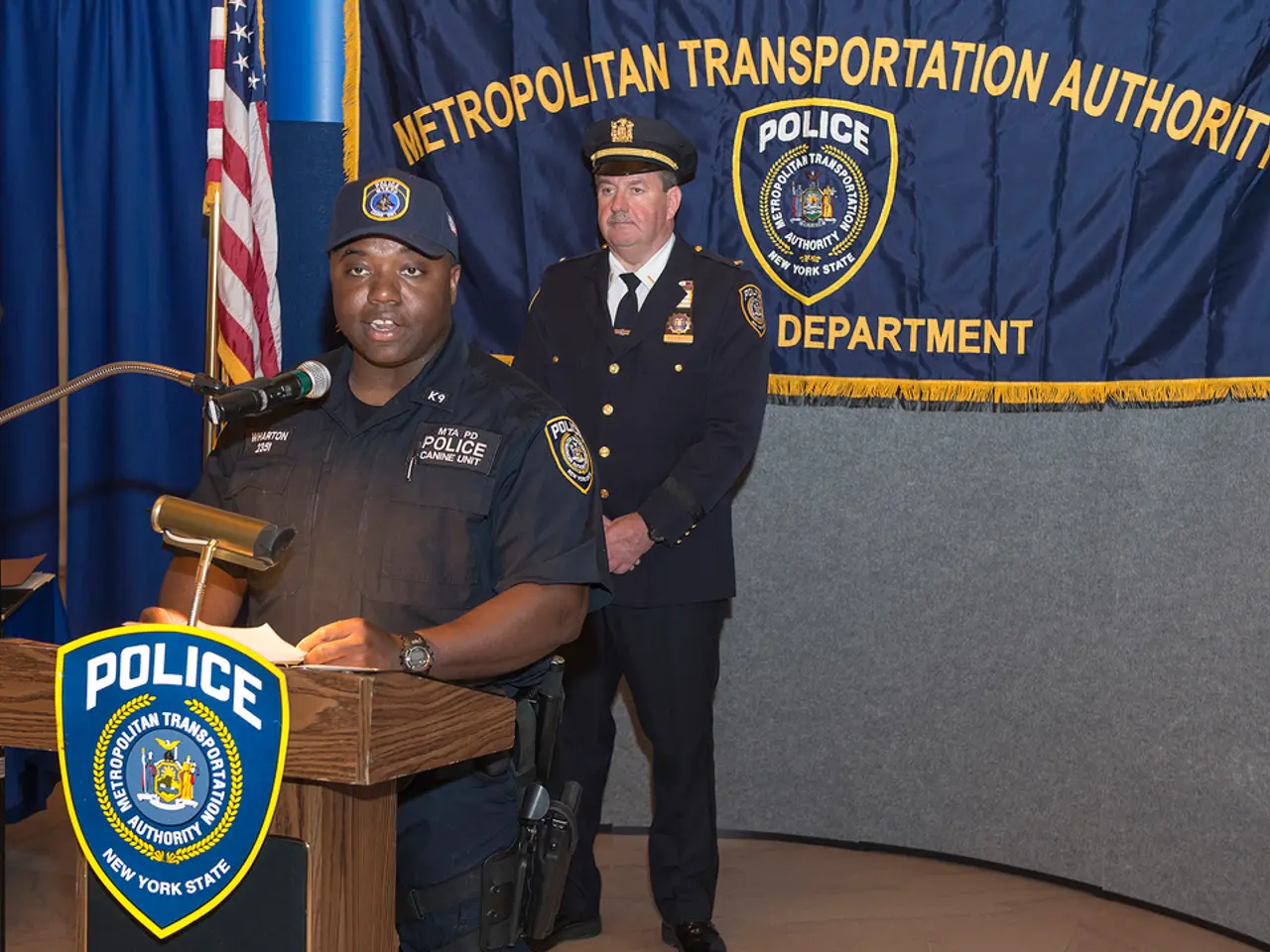Misconduct by Police Officers: Examining the Legalities of Police Operations
The debate surrounding police accountability and misconduct in the United States is a complex issue, reflecting a broader national movement to address systemic problems within law enforcement. This article will explore key areas of focus in the ongoing discussions and reform efforts.
Qualified Immunity
A contentious issue is the protection provided by qualified immunity, which shields officers from civil lawsuits unless they violate "clearly established" rights. Reform efforts aim to reduce or eliminate this defense, but police organizations argue it would lead to a surge in litigation. Bills have been proposed in various states and federally to modify or abolish qualified immunity, with some states like Ohio exploring constitutional amendments.
Transparency and Oversight
The push for greater transparency through the release of police records and body camera footage is a crucial aspect of the accountability discussion. California has implemented laws requiring the release of such evidence, and many states have established independent investigative bodies.
Decertification and Accountability Laws
The issue of "wandering officers" who move from one jurisdiction to another after being terminated has highlighted the need for national decertification standards. Over 40 states have enacted laws to prevent officers from being rehired in other jurisdictions after misconduct.
Use-of-Force Policies and Training
There is ongoing discussion about revising use-of-force guidelines and enhancing training in de-escalation and bias awareness. Many jurisdictions have revised their policies and expanded training programs to emphasize de-escalation techniques.
Civilian Oversight and Community Involvement
The role of civilian oversight boards in investigating and disciplining officers is a topic of debate. Several cities have empowered civilian oversight boards with greater authority to monitor police actions.
The national movement for police reform is driven by public outcry over high-profile cases of misconduct and systemic racism. This has prompted comprehensive reforms across the country, including legislative actions and policy changes aimed at enhancing accountability, transparency, and community trust in law enforcement.
Robust civilian oversight mechanisms are common in Commonwealth nations, with independent investigation units specifically tasked with examining police misconduct. Community-police partnerships have proven effective in building trust and reducing tensions, with programs involving joint community-police training sessions, neighborhood liaison officers, and youth outreach initiatives.
Outdated or inadequate policies contribute to misconduct by failing to address modern challenges or incorporate evidence-based best practices. Officers in departments with toxic workplace cultures show significantly higher rates of excessive force complaints and civil rights violations.
Body cameras serve as objective witnesses to police interactions, providing evidence in misconduct investigations and deterring improper behavior. During police encounters, citizens have the right to remain silent, refuse searches without a warrant, film police in public, and request an attorney.
Administrative sanctions through internal affairs investigations and civilian oversight boards can result in disciplinary actions ranging from suspension to termination. Training gaps in policy implementation create dangerous knowledge gaps that can lead to constitutional violations and improper use of force.
Developing nations face unique challenges in establishing effective police accountability systems, such as limited resources, cultural factors, and sometimes political interference. Deep-rooted systemic problems in police departments, such as poor oversight mechanisms and inadequate accountability measures, increase the likelihood of recurring misconduct issues.
Comprehensive reform initiatives have emerged nationwide to address police misconduct and enhance accountability, resulting in up to 40% reduction in use-of-force incidents and improved public trust ratings. Civil litigation under Section 1983 of the Civil Rights Act allows individuals to sue government officials for constitutional violations.
Administrative sanctions often prove more effective than criminal prosecutions in addressing less severe misconduct, as they require a lower burden of proof and can be implemented more quickly. Qualified immunity is a legal doctrine that protects police officers from civil lawsuits unless they violate "clearly established" constitutional rights.
Legislative reforms, such as mandatory body camera laws, restrictions on qualified immunity, and enhanced transparency requirements, are being introduced at state and federal levels. Community engagement programs, such as civilian oversight boards, community policing initiatives, and regular public forums, have created channels for meaningful dialogue between law enforcement and residents.
The future of police accountability depends on our collective commitment to ensuring that no one, especially those in uniform, operates above the law. Reform efforts within police departments focus on transforming internal culture and operational procedures, including enhanced training programs, revised use-of-force policies, and implementation of early warning systems to identify officers at risk of misconduct.
Inadequate training remains one of the most significant factors contributing to police misconduct, with some departments providing as little as 13-19 weeks of basic training compared to 2-3 years required in many other countries. The "blue wall of silence" and an "us versus them" mentality in departmental cultures create environments where reporting violations becomes taboo, and accountability measures are viewed with hostility.
Civilian review boards provide independent oversight of police conduct by investigating complaints, recommending disciplinary actions, and suggesting policy changes. European police forces generally operate under strict accountability frameworks that emphasize prevention over punishment, with countries like Norway and Denmark implementing comprehensive systems where every use of force must be documented and reviewed.
Emerging technologies, such as advanced surveillance systems and body-worn cameras, are becoming standard equipment in policing, with over 80% of large police departments now utilizing these devices.
- The emphasis on civil rights and self-development within our society has extended to the call for reforms in law enforcement, as individuals challenge the use of excessive force and discrimination by police officers.
- With the rise of technology, new tools such as body cameras and advanced surveillance systems are being adopted in the realm of education-and-self-development and general-news, aiming to increase transparency and accountability in various sectors, including sports and casino-and-gambling.
- As we engage in discussions surrounding lifestyle choices, it is essential to recognize that accountability and transparency must also extend to the technological advancements that may impact our privacy and civil liberties, forming an integral aspect of ongoing debates.




